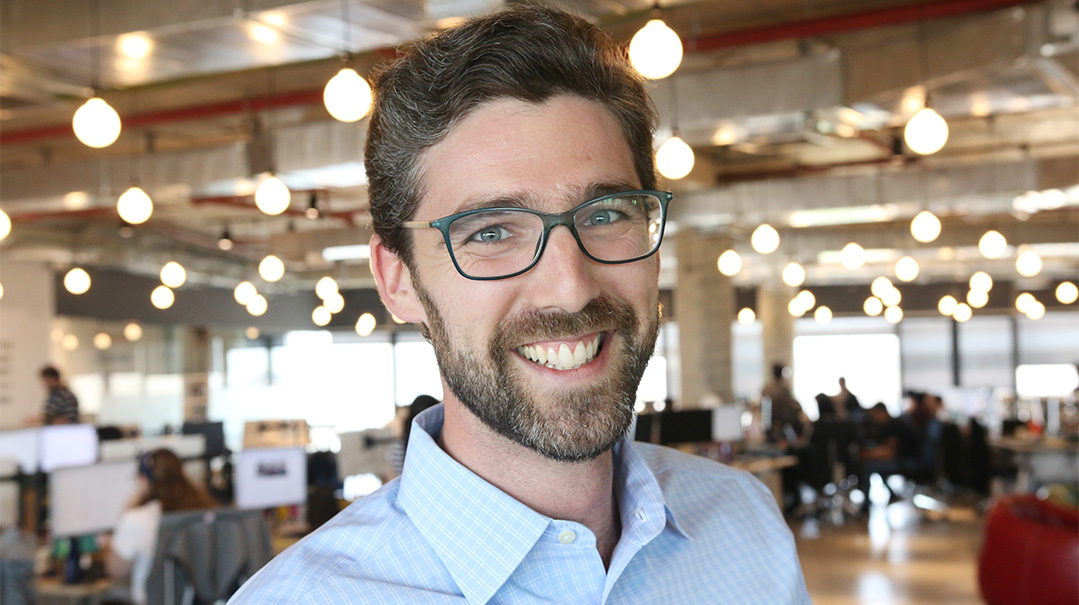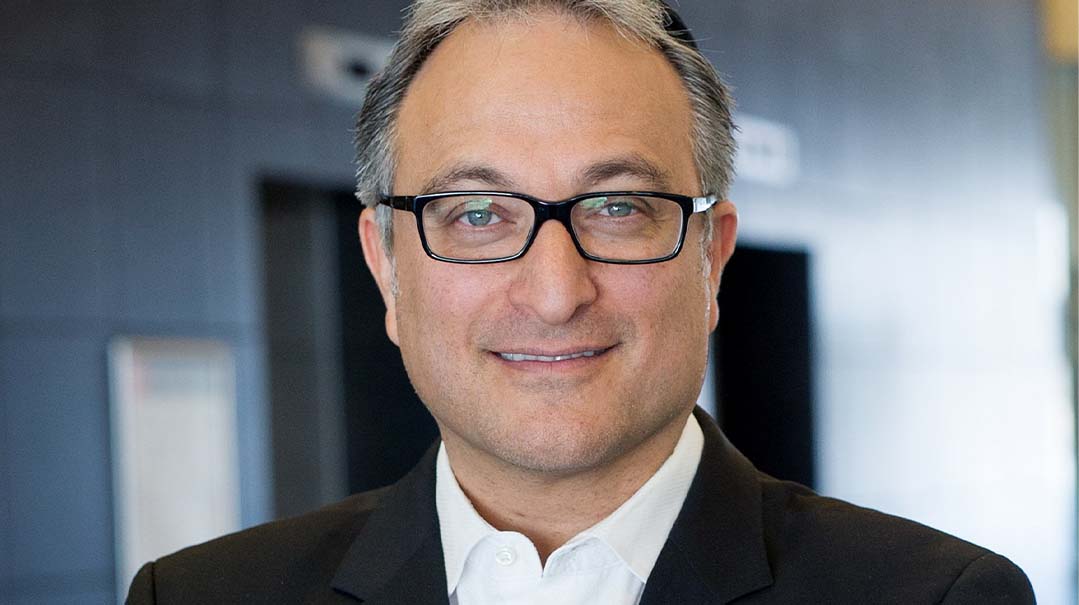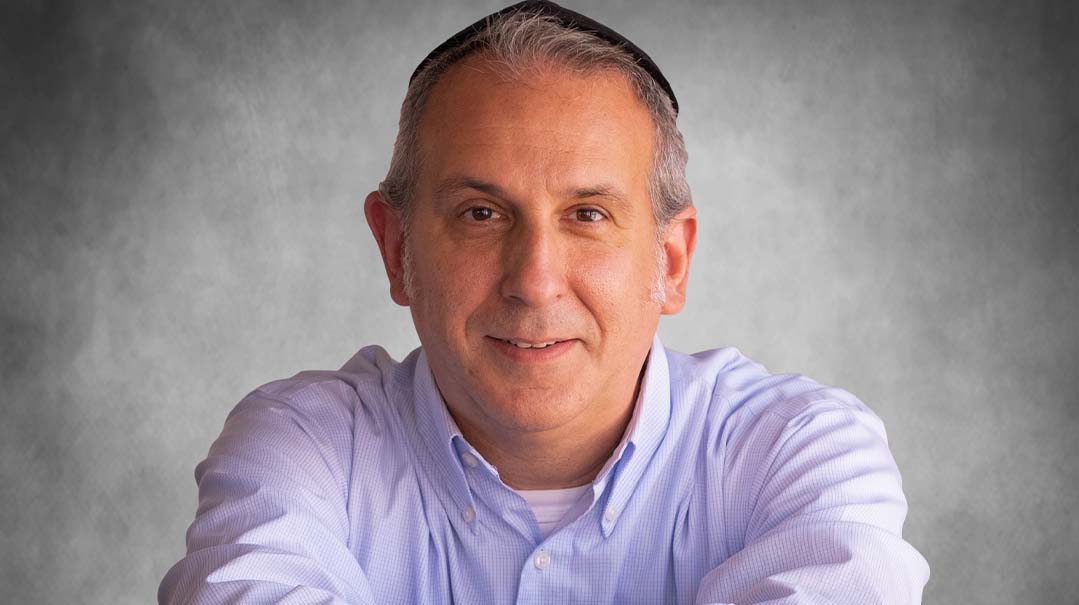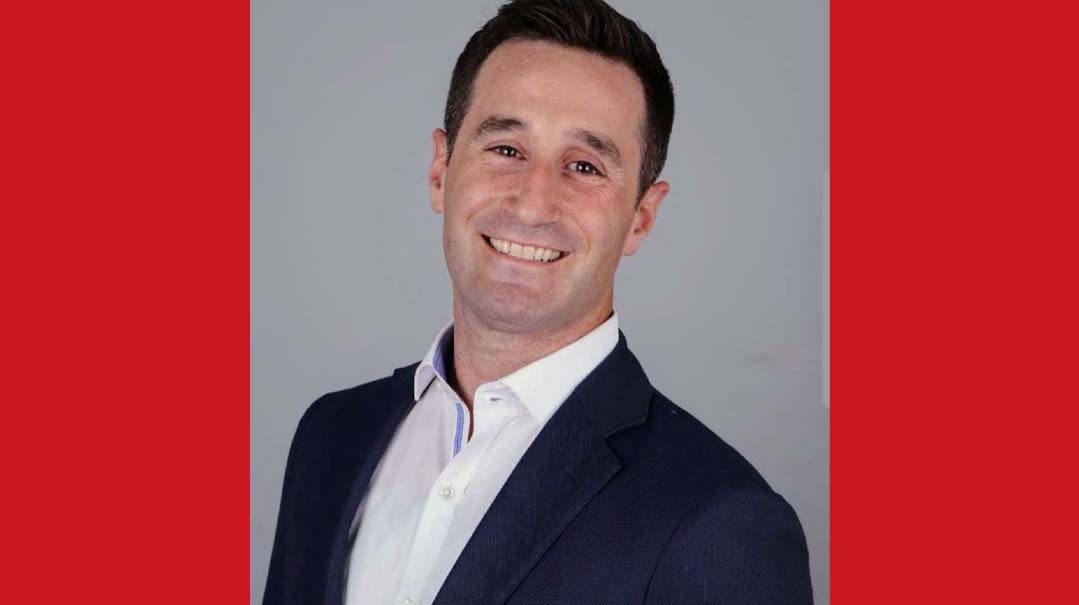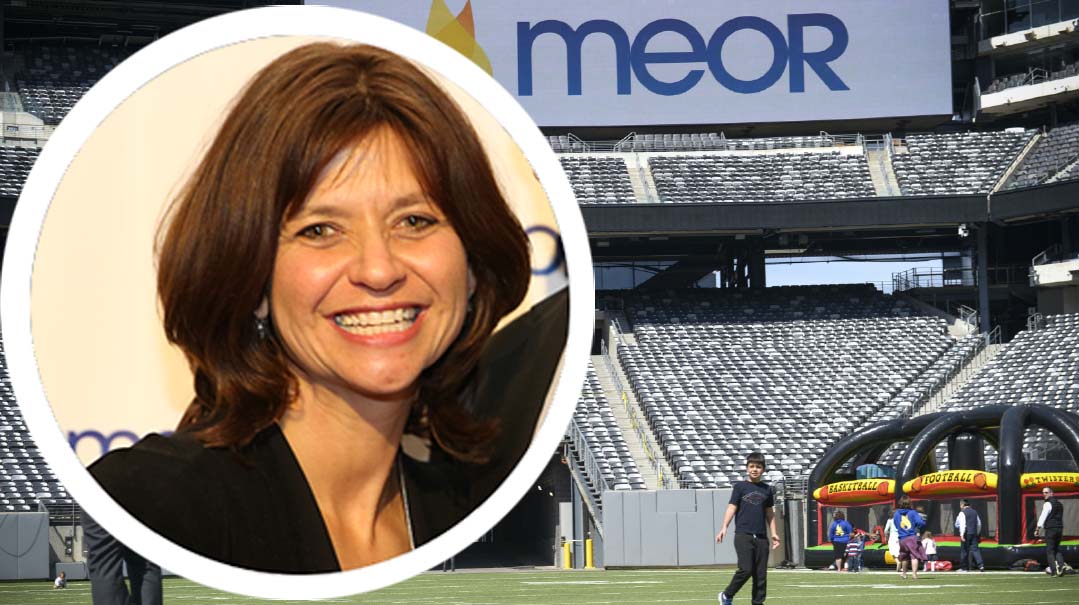Work/Life Solutions with Jonathan Donath

"I’m so enthusiastic about Daily Giving — it provides all Jews a way that they can help dozens of incredible organizations in a significant way"
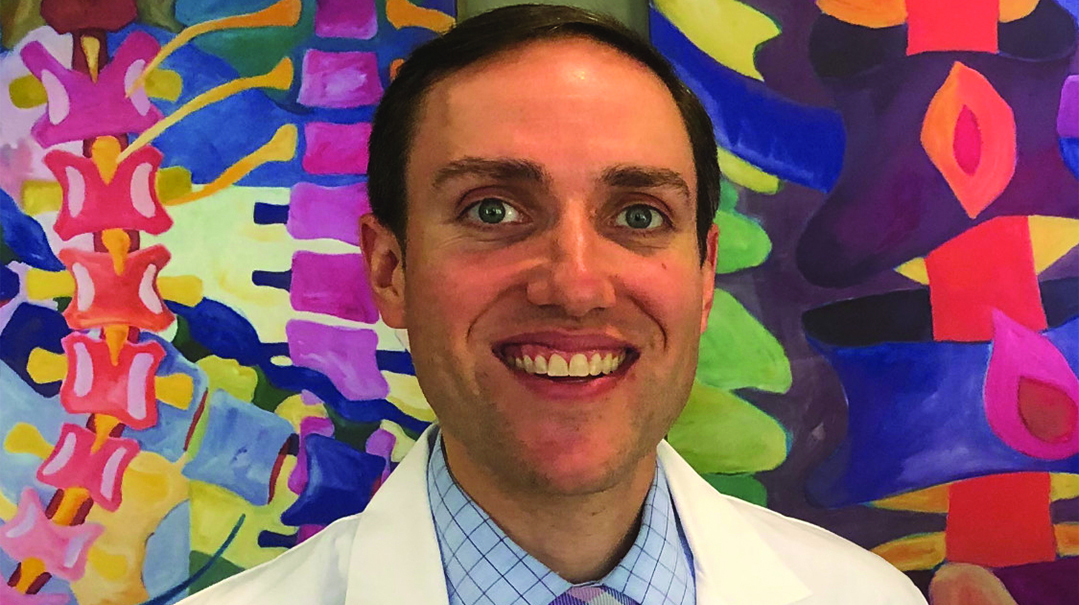
Who: Dr. Jonathan Donath, founder and director of Westchester Spinal Decompression Center and Joint Effort Chiropractic in White Plains, NY, and is the co-founder of DailyGiving.org.
What: Jonathan specializes in non-surgical spinal decompression therapy. This cutting-edge, FDA-cleared treatment, is effective in some of the most severe cases of herniated discs, sciatica, degenerative disc disease and failed back surgery, and can help patients who were told surgery was their only option. Jonathan, author of the 2015 book, The Neck and Back Pain Solution, has a variety of patients coming for treatment from all over the world (including professional athletes, actors, and roshei yeshivah). In 2019, Jonathan co-founded a unique Jewish non-profit called DailyGiving.org.
Where: Jonathan was born and raised in Minneapolis, MN. There was no local Jewish high school, so he left home at 13 and went to Skokie yeshivah for four years, followed by a year and a half at Mevaseret in Eretz Yisrael, and then Yeshiva University. Afterward, he attended the University of Bridgeport College of Chiropractic (where he was class valedictorian) and also picked up a master’s degree in human nutrition. He resides with his wife and two children in White Plains, New York.
Why: There are very few people I know who have personal relationships with world-renowned athletes, Broadway stars, and gedolim, and who have garnered the respect of them all. But more than that, I was intrigued by the worldwide tzedakah project he launched. Daily Giving is an innovative yet simple platform that enables people to give $1 a day to tzedakah. Over 4,900 people already signed up, which means that Jonathan is on track this year alone to distribute over $1.75 million to various causes in the Jewish world.
1 of 9: What opportunities or personalities played a key role in your career path?
You get to choose your spouse but you don’t get to choose your parents. I am incredibly blessed to have been born into my family — my parents are the best role models I could have ever hoped for. Growing up as the son of a renowned professor of mechanical engineering who got his PhD from MIT and an occupational therapist who did her training at Columbia and Johns Hopkins universities, you’d think I would have had a lot of pressure to succeed. Yet from the time I was a kid, all the way through adulthood, they never forced me into any one direction. They were strict when they needed to be but always fair and compassionate. They gave me and my three siblings unconditional love and support and were behind me 100 percent in every decision I ever made. They taught me the meaning of hard work and dedication to your craft. If you’re going to do something — strive to give it your best. I also feel incredibly blessed to have always had amazing friends and incredible rabbanim at every point in my life – in Minneapolis, in Skokie, at Mevasseret, in YU, and in White Plains. Everyone plays a role and shapes who you become.
As for opportunities, after my gap year in Israel my plan was to attend YU to study business. I went to Camp HASC the summer before YU and that changed my life. Taking care of kids with special needs for eight weeks 24/7 was a wake-up call on so many levels. The responsibility of caring for someone totally dependent on you is a very powerful experience. That was when I decided I wanted to be a doctor and help people.
After two summers at HASC, I continued to work with special needs children — my wife and I worked in HASC and OHEL homes on weekends. Today, six different organizations that serve people with special needs are beneficiaries of Daily Giving.
2 of 9: Which three charactertraits have played a keyrole in your success?
Persistence and determination. I don’t give up until the goal is reached. Rabbi Paysach Krohn, who’s on the Daily Giving’s rabbinical council, has an equation he quotes that I think can be helpful in so many different areas in life: SW3/N — Some Will, Some Won’t, So What — Next! If you believe in yourself and what you’re doing, Some Will like it and be supportive, Some Won’t think it’s a good idea and may not be supportive. So What? Next — don’t waste your time with the naysayers. If you believe in yourself and whatever it is you’re doing, don’t get discouraged. Just keep pushing forward.
This obviously came in handy as I started my practice from scratch over 14 years ago, but it’s a trait that got Daily Giving off the ground as well. In the months between having the idea about Daily Giving until we launched the website, it was exciting how many people said they loved the idea of an easy and automated way that guarantees you the mitzvah of tzedakah every single day. Based on everyone’s enthusiasm, I thought we’d have 1,000 people signed up in the first week. The reality, however, was a bit of a rude awakening. I find that if people don’t act immediately and sign up for Daily Giving right after they hear about it, they just simply get distracted with their busy lives and forget.
It took a few months to get a few hundred people, and a little over a year to get up to a thousand Daily Givers. But five months later, we were up to 2,000, and two years in, we have over 4,900 people giving at least a dollar a day through DailyGiving.org. But I’m confident we can get thousands more to sign up, and the millions raised would be a huge boon for tzedakah organizations, into which we funnel all our funds. By coming together as a community and as a nation and combining everyone’s dollar together, a large donation is given every day to a different deserving cause. There’s a tremendous power in the achdus of all different sects within Klal Yisrael from all over the world coming together, each giving their own “machatzis hashekel.” Alone, $1 is basically insignificant, but when thousands give together as a community, as a nation, it’s truly unbelievable what can be achieved. We started and with no money and no budget for marketing, yet we’ve already raised over $3.3 million for our incredible beneficiary organizations.
Sensitivity and empathy. I’ve always had strong radar for people’s feelings — I can sense how people feel physically and emotionally almost immediately. I often know how people are feeling before they even tell me, which means I can ask the right questions and make my patients feel secure and cared for.
A growth mindset. I’ve always been fascinated by new learning opportunities. There are so many incredible people we come into contact with on a daily basis who we can learn from. I learn from my wife, my children, my friends, my rabbanim, my staff, and my patients. In my continuing education seminars, I feel that even if I learn one thing that helps one patient, the expense and time is worth it. I see myself as a work in progress.
6 of 9: What is the most inspiring feedback you’ve ever received? Did that impact what you did next?
I’ll share three stories — one related to Daily Giving and two from my professional life.
A few months ago, I received an email from a well-known educator and author Rabbi Yitzchak Kasnett of Cleveland, Ohio, who is a Daily Giving member. He thanked me for being his “Olam Haba investment portfolio manager.” I couldn’t stop smiling the rest of the day! Rabbi Kasnett understood that the value of Daily Giving is so much more than his simple dollar a day.
And the great Rav Gav Friedman said this about Daily Giving: “Imagine after 120 years, you die and go up to Shamayim. You’re greeted by hundreds of thousands of malachim and each one has a different plaque that says, ‘I was created the day you visited a choleh. I was created the day you helped a couple with infertility issues afford treatment. I was created the day that you fed someone who had no food and sheltered someone with no place to sleep.’ You’re looking around and you say, ‘Ribono Shel Olam, who are these malachim representing? I don’t remember doing any of these things. Maybe there’s a glitch in your system.’ Then Ribono Shel Olam turns to you and says, ‘You don’t remember? Many years ago, you signed up for an organization called DailyGiving.org. You gave a dollar a day for many years and it went to help so many different causes. You didn’t even feel it but because you gave together with thousands of your brothers and sisters, you had a part in helping millions of Jews around the world!’
The second story of inspiring feedback I want to share is the following:
I wrote a book on non-surgical spinal decompression therapy, a technique I specialize in that helps people with chronic neck and back pain even when all other treatments have failed. Because of my book, I’ll sometimes see patients that come from other cities or countries. One woman came from Jamaica to live in New York for three months so I could treat her chronic lower back pain. This woman is a devout Evangelical Christian and we had many fascinating conversations. I was the first Jew she ever met in person. She told me that her entire life, every Sunday her church congregation prays for Israel. On her last visit, she not only thanked me for helping her, she told me that for the rest of her life, she will be praying for all Jews in addition to praying for Israel because now she sees how amazing Jewish people are. This is really the greatest perk of my job — the opportunity to make a kiddush Hashem every day. Being a catalyst in people making positive associations with Jews is an incredible feeling. Everyone can find such opportunities — through chesed and maasim tovim, but mostly by being honest and a mensch and treating everyone with respect and compassion.
The third story relates to an incident that happened on a family trip to Israel. There is a certain world-famous rav to whom people travel from all over for brachos and yeshuos, and although I never felt the need for such a visit, my good friend, Rabbi Rami Strossberg (one of the other co-founders of Daily Giving) convinced my wife and me to go, telling us that a brachah is itself always a wonderful thing and that everyone can use more chizuk, even without an acute problem. So we went. As we’d heard, the rav was indeed full of happiness and radiated joy, and he knew things about us that were completely unexpected. As we were leaving his apartment, he tapped me on the shoulder and pointed to his back and said, “yeish li k’eiv bagav (I have pain in my back).” I offered to take a look, and he led me into his bedroom where I examined him. One of the questions I asked him is, on a scale of 1-10, 10 being the worst pain you’ve ever felt, how would you rate your pain? He said 10. I said, “How long has it been this bad?” He said for over a month! I was in shock. This rabbi, who had just entertained us and smiled from ear to ear while asking us (complete strangers) about our lives and giving us chizuk and brachos, was in agony the whole time.
I treated the rav, he thanked me, and we left. That night, his wife called me and asked if I could come again the next day. I returned the next day with a portable chiropractic table I had borrowed and actually treated him several more times during that trip. After the second treatment, the rav took my hand in his, looked into my eyes, rather deep into my soul, and said to me, “Yesterday I was in so much pain, I went to the Kosel and davened to Hakadosh Baruch Hu to please send me a good doctor – and then you knocked on my door.” I literally felt a bolt of electricity go through my body when he told me that. This whole experience and the rav’s feedback reminded me that I am just a vessel, a messenger through which Hashem can choose to heal people. My talents are min hashamayim and it’s a tremendous zechus to be able to use them to help people get out of pain. (And the rav still calls me every Rosh Chodesh and Erev Yom Tov to shower me with brachos.)
7 of 9: If you were asked to deliver a TED Talk watched by 50 million people, what topic would you choose to speak about? Why?
I would call it “A Giving Revolution” — about how Klal Yisrael’s virtual tzedakah box is unifying people across demographics and generations with the power of microdonations. This is similar to the idea that a single blade of grass or twig is easily broken, but when tied together with other blades or twigs, it is nearly impossible to break. Such is the power of unity, of achdus. If someone is embarrassed because they don’t have a lot of money to give, or they feel that their contribution won’t be helpful because it’s too small, when combined with the contributions of others, the effect is enormous — it’s the power of the collective consciousness of Am Yisrael working together. Who can even measure the great spiritual impact from such an endeavor?
Everyone wants to be sure that their tzedakah money is going to make a difference. Unfortunately, there are so many Jews in need and so many incredible organizations that desperately need funding. No one can possibly give to them all and it can be a deflating feeling getting so many envelopes in the mail and not being able to give to very many of them. That’s why I’m so enthusiastic about Daily Giving — it provides all Jews a way that they can help dozens of incredible organizations in a significant way. And there’s no overhead. Every cent goes to the beneficiary organizations, which have been vetted to make sure the funds are being maximized, and every single day, all of the givers receive an email telling them which organization that day received the donation and how much was collectively given to them.
8 of 9: How do you navigate the tension between your deepest values and the business world?
Actually, I’ve found the opposite to be true in my case. There is no tension at all between my Jewish values and the business world. I have even had a few patients tell me that they chose me because they wanted a Jewish doctor. Being an Orthodox Jewish doctor in a primarily non-frum area gives me amazing kiddush Hashem opportunities. I help people who have been suffering with chronic pain for months or even years become pain-free. I get to know my patients pretty well and they get to know me and what my values are. Over the course of treatment, I often have very open conversations where my patients feel comfortable asking me about Judaism, and then the NCSY advisor in me comes out and I happily explain the beauty of our religion, how what some perceive as restrictions are in reality avenues to growth and expansion. So much hatred stems from ignorance, and creating these safe spaces for honest and caring dialogue can be as healing for the soul as the treatments I render are healing for the body. I never know what effect these conversations are going to have on either my secular Jewish or non-Jewish patients, but I am confident that these interactions leave them with positive feelings about Judaism.
As the COO of Partners in Torah, Moe is spearheading a digital transformation, strategic partnerships, and global expansion. Previously, he was the Founder & CEO at Winfluencers, the Head of BizDev for Hometalk, Strategy Consultant for Deloitte, and Regional Director for the Lauder Foundation. He holds an MBA and semichah, and published his first book, The Gift of Stuttering (Mosaica Press, 2016). He also teaches a Daf Yomi shiur, produces inspirational videos on the Daf (“Daf Yomi MoeMents”), and gives lectures to audiences worldwide. Moe lives in Ramat Beit Shemesh with his wife and children.
(Originally featured in Mishpacha, Issue 855)
Oops! We could not locate your form.







